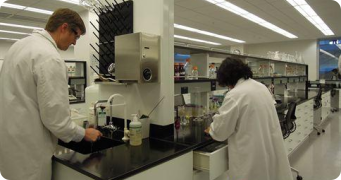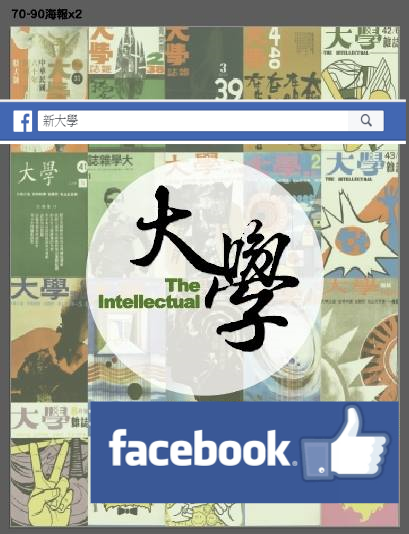♦ 本篇文章轉載自 陌上美國。若有侵害著作權,請速告知,我們將盡速移除 ♦
2019/3/21
【編者按】經過一段時間的努力,近日,在美國知名的三個華人科學家組織:美國華裔生物科學家協會(SCBA)、美國華裔血液和腫瘤專家網路(CAHON)以及華人生物學者教授學會(CBIS)聯合在美國最權威的《科學》雜誌上發文,表達了對當下政治環境給科學界造成的衝擊和變化的強烈關注。對一些特定針對在美華人科研人員的偏見和歧視,發出了理性抗議和深切擔憂。現附上全文翻譯(版權屬於《科學》雜誌和作者)。
標題:種族歧視傷害科研
“我們代表美國華裔生物科學家協會(SCBA),美國華裔血液和腫瘤學家網路(CAHON)以及華人生物學者教授學會(CBIS)撰文,表達我們對近期一些政治言論和政策的擔憂。
類似於”在美國工作的華人學生和學者是對美國國家利益的威脅“之類的言論,給高度敬業的華裔專業人士帶來困惑、恐懼和沮喪。他們面臨著被專門針對,成為替罪羊、種族歧視和偏見傷害的對象的可能。
美國的國家政策需要避免對特定人群的特別針對,正如加州國會眾議員趙美心所說,“整個華裔群體都被懷疑是中國的間諜”。
現有的美國法律,立足於保護美國的利益,懲罰盜竊商業機密或從事非法活動行為的人。我們絕對支援保護智慧財產權,和為避免就業和治理中出現的利益衝突而既定的相關政策。
近年來,這些政策得到了進一步加強,包括美國國立衛生研究院(NIH)在內的各種聯邦和州機構提出了更為詳細和具體的要求。絕大多數華人科學家和學生都是遵守這些規則的守法公民、居民或短期留學訪問的學生學者。
在不觸及國家安全的前提下,美國科學界完全可以做到開放資料訪問和資料共用。這些對於加速研究進步,非常重要。美國國立衛生研究院多年來一直支持這些政策。
大多數華裔科學家認為,生物醫學研究對全人類都有益,多國合作加速了科學進步和發現。但是,一些NIH的推薦,如果一旦滲入了偏見,則可能傷害良性合作。例如,NIH建議培養與外國合作夥伴的“信任關係”,但沒有說明是否必須通過官方正式管道。美國國立衛生研究院還建議,當與外國合作者進行科學交流的時候,要受到更多的限制,這可能會妨礙一些正常的合作。
近幾十年來,有幾個引人注目的案例,涉及的美籍華裔科學家都被錯誤地指控成間諜。雖然所有指控最終都被撤銷或當事人被證明無罪,但這些訴訟不僅對這些人的職業生涯造成了破壞性影響,而且對整個美國華人科學界產生了令人不寒而慄的負面影響。同時,中國學生和學者越來越難以獲得簽證,嚴重妨礙進入美國進行科學會議、探訪和研究的機會。
我們真誠地希望,這些我們認為相當於種族歧視的行為能立即停止,加強國家安全措施同時不要玷污守法的科學家,導致限制正常和富有成效的科學交流。
因此,我們敦促聯邦和地方政府與我們的學術和研究機構合作,不分種族地為每個人創造一個被尊重,透明而富有成效的環境。我們也希望,美國和外國學術界之間的科學合作和交流,能夠得到加強而不是被壓制。
美國的科學進步和技術創新是全球努力的結果。它的未來將取決於在全球舞臺上,能否延續這一經受了時間考驗的、開放和合作的傳統。”
SCBA會員
CBCBIS會員
CACAHON會員
本函中所表達的觀點僅代表作者和三個組織的立場,而非作者附屬的工作單位和機構的觀點。
原文連結:
http://science.sciencemag.org/content/363/6433/1290
On behalf of the Society of Chinese Bioscientists in America (SCBA), the Chinese American Hematologist and Oncologist Network (CAHON), and the Chinese Biological Investigators Society (CBIS), we write to express our concerns about the recent political rhetoric and policies that single out students and scholars of Chinese descent working in the United States as threats to U.S. national interests [e.g., (1) and pp. 6–7 in (2)]. These developments have led to confusion, fear, and frustration among these highly dedicated professionals, who are in danger of being singled out for scape-goating, stereotyping, and racial profiling. U.S. policies must avoid targeting, as Representative Judy Chu (D–California) put it, “an entire ethnic group of people for suspicion that they're spies for China” (3).
Existing U.S. laws are in place to safeguard America's interests and to punish perpetrators for stealing trade secrets or engaging in illegal activities. We absolutely support the well-established policies regarding intellectual property, employment, and governance of conflicts of interest. Such policies have been further enhanced in recent years with more detailed and specific requirements from various federal and state agencies, including the National Institutes of Health (NIH) (4). The vast majority of scientists and students of Chinese descent are law-abiding citizens, residents, or visitors who have followed these rules.
Open data access and data sharing are important for accelerating research advancement and can be implemented without putting U.S. security at risk. NIH has espoused such policies for years (5). Most Chinese-American scientists believe that biomedical research benefits all mankind and that multinational collaborations accelerate scientific progress and discovery. However, some NIH recommendations could target collaborations if implemented with bias. For example, NIH recommends fostering “trusted relationships” [p. 12 in (2)] with foreign partners but does not specify whether the trust must be established through official channels. NIH also suggests more disclosure requirements for foreign collaborators than domestic colleagues (pp. 12–13 in (2)], which could hinder collaborations.
In recent decades, there have been several high-profile cases in which Chinese-American scientists were wrongfully accused of spying [e.g., (6–10)]. Although all charges were eventually dropped and/or the individuals legally exonerated, the lawsuits have had not only devastating effects on the careers of these individuals but also a chilling and negative impact on the Chinese-American scientific community at large. It has also become increasingly difficult for Chinese students and scholars to obtain visas to enter the United States for scientific meetings, visits, and research opportunities (3).
It is our sincere hope that these actions, which we believe amount to racial profiling, will stop immediately and that increased security measures will not be used to tarnish law-abiding scientists and limit normal and productive scientific exchanges. We thus urge both federal and local governments to work with our academic and research institutions to create a respectful, transparent, and productive environment for everyone, regardless of their ethnic origin. We also hope that scientific collaborations and exchanges between the United States and foreign academic communities will be strengthened rather than suppressed. American scientific advances and technological innovations are the result of global efforts, and their future depends on the continuation of time-tested traditions of openness and cooperation on the global stage.
SCBA member.
CBIS member.
CAHON member.
The views expressed in this Letter are solely those of the authors and the three organizations, not the affiliated institutions of the authors.
http://www.sciencemag.org/about/science-licenses-journal-article-reuse
♦ 專文屬作者個人意見,文責歸屬作者,本報提供意見交流平台,不代









